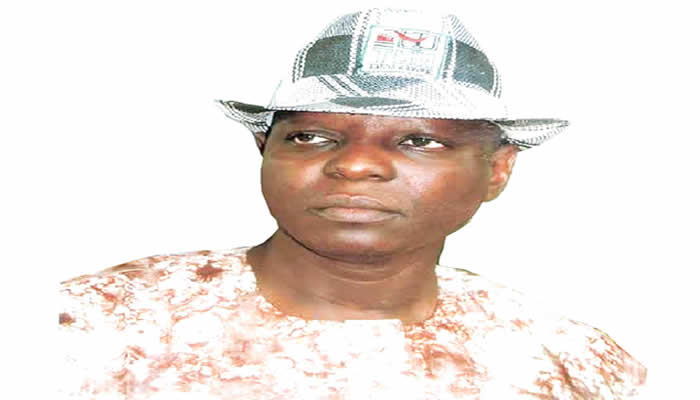
The Second National Vice President of the Nigeria Union of Teachers, Bulama Abiso, tells ALEXANDER OKERE that the decision of the Kaduna State Government to dismiss 2,357 teachers for failing competency test will not stand
Teachers in Nigeria continuously decry their remuneration which they consider inadequate, the dearth of manpower in public schools as well as the alleged disregard for their contributions to national development. What has the NUT done to ensure that the right actions are taken to address these problems?
The NUT is at the forefront of agitating for a very conducive work environment. Since our World’s Teachers Day in 2020, we have made a lot of requests from the Federal Government and it accepted almost all the requests. We have also tried to put forward the elongation of teachers’ retirement either by service or age and the Federal Government accepted. Our only challenge is the state governments vis-a-vis the local governments which always say there is a lack of funds or the funds are not enough. Some of the pronouncements by the Federal Government do not get down to the local governments. In fact, when it comes to remuneration, there are a lot of states that have implemented the N30,000 minimum wage but it has eluded primary school teachers. This is where our focus is now – to see that teachers’ welfare is improved and that the teaching condition is improved.
What responses does the union get from the state and federal government on the demand for the employment of additional teachers?
The idea of increasing the retirement age for teachers is aimed at curbing the dearth of teachers in our schools. So, the NUT has through its national office and the various states raised discussions. Some state governments have responded, particularly at the Senior Secondary School level, while at the basic level, some (states) are still grappling with it because they give the same old complaint of lack of funds. That is why the NUT is agitating to see that the salaries of primary school teachers come out in the first charge of the Federal Allocation Committee. That was the practice when the National Primary Education Commission was introduced. At that level, everybody knew the number of teachers in active service and the number that had retired, and every year, there was a provision for the employment of teachers. But nowadays, the emoluments of retired teachers are channelled into things other than recruitment; so, you will find out that teachers who retired have not been paid their gratuity and new teachers have not been employed. They are exploited by politicians. That is why we support local government autonomy.
Do you think governments are sincere when they claim they can’t meet the huge wage bill that comes with the employment of more manpower?
There is no sincerity. There are interventions that the states get through organisations in terms of funding, furniture and buildings but the state governments are concerned about building classrooms that can give them instant appreciation.
While the recruitment of additional teachers to reduce the burden on teachers in public schools is still an issue, some state governments have questioned the qualifications of your members through competency tests and even sacked many, with the most recent being the sacking of over 2,000 teachers by the Kaduna State Government for failing a competency test. What is the NUT’s reaction to that?
In the first place, the NUT is not running away from a competency test. All the NUT is saying is that there are regulatory bodies. Let this (test) come through the regulatory bodies. But the government went ahead and did it on its own and announced phony results which we do not support. If the test comes from a regulatory body, an independent body, we are ready. Education is key to the development of the nation. We are not also happy if there are people not competent to teach but how the government is doing it is the problem.
Which body do you think should have conducted the test?
There is the Teachers Regulatory Council of Nigeria saddled with the responsibility of conducting competency tests, certifying teachers, and withdrawing the certificate. It is an independent body. The state government is using those results to victimise our members. People who do not have the minimum of an NCE or its equivalent can be set aside because we know they are not teachers. Those who have the qualifications can then be tested to see how they deliver, their weaknesses and how they can address the deficiency they have. Apart from the number of professional teachers we have, do we still lack teachers? Can we recruit additional teachers from outside? What level of experience do those who teach without professional qualifications have? Can they, with their experience, add value? We need to look at them individually and those that can add value can be recommended to certain schools. We want the government to look at things holistically, considering the schools and children.
Why do you think the state government is victimising your members?
They want to give credence to the loans they get from donor agencies, where they tell them (the government) that it has to reduce its workforce. Maybe as elections are coming, they want to recruit their cronies, otherwise, there is no basis for the sacking of teachers.
But the government said the test was conducted to ensure that pupils in the state received better learning outcomes. Don’t you think the competency test was in the public’s interest, considering that the State Universal Basic Education Board said 233 teachers presented fake certificates during a verification exercise carried out in 2021?
A verification exercise is different from a competency test. When it is verified that someone has a fake certificate, nobody will stand to defend that person. It was the state government that employed the person in the first place. We live in the same community. You can find corruption everywhere. So, I cannot categorically tell you that our members are devoid of that.
Did your members who were sacked take the test?
Those (over) 2,000 teachers did not take the exam and they followed the union’s directive not to take the exam. They were actually sacked because they did not take the exam, not because they took it and failed. Some teachers took the exams but those who were sacked by the Kaduna State Government did not.
The national president was also reported to be among the 2,192 teachers sacked by the state government for refusing to take the test. How did the union receive the news?
We have had such an experience in the past, where a government would sack a member. So, we took it as a normal threat, summoned our National Executive Council, and decided that what the state government did is null and void and had no effect on his person as the national president.
Your union threatened to go on strike if the state government failed to reinstate the teachers. It’s been over a week since the teachers were sacked. Is the union going ahead with the strike? When will it begin, and is it indefinite?
For now, there are some options we are looking at because some cases are pending in court. Maybe as a last resort, we are looking at a strike. But for now, we have not fixed a date for any strike or told our members to proceed on any strike.
Has the union received favourable justice in any of the cases in court?
Yes. In Kaduna, we had a substantive case that the competency test conducted was not in order.
Has that judgement been implemented by the government?
No. I think it is appealing.
Between January 2020 and June 2022, over 9,000 teachers were reportedly sacked by some state governments for different reasons, including failing competency tests and being illegally recruited. Would you say such government actions were unlawful?
Yes, many are unlawful but others have been rightly done because a committee was set up to verify.
The Anambra State Governor, Chukwuma Soludo, who recently sacked 1,000 Parents/Teachers Association teachers, said their recruitment into the school system was conducted in a manner that was not transparent and they were, therefore, not qualified. Do you think the governor erred?
The government has its way of recruiting teachers. Unless there was a directive to the PTA to recruit those teachers, I think the government was right. I am not conversant with it because it has not been brought to my attention but a government has its way of recruiting teachers. It is my personal opinion. To my knowledge, the NUT does not have members called PTA teachers. By law, all teachers engaged at the secondary and primary levels, whether at the public or private levels, belong to the NUT. If they teach and remit their dues to the union, they are members.
There have been growing concerns over the use of corporal punishment by teachers in Nigerian schools, with some calling for an ending to flogging as a means of disciplining an erring pupil. Does the NUT support that?
The NUT is also at the forefront of that because we are a member of many international organisations, including Education International which frowns on corporal punishment in schools. We are not in support of it in any way. Teachers who use corporal punishment do that at their own risk.
Does the union have a way of sanctioning any member in this regard?
The government has all the laws and regulations and has the right to punish any erring teacher. It is the primary responsibility of the head teacher in the affected school and the government to take disciplinary actions. It is when the government takes a decision that is against the law that the NUT comes in defence of the teacher. The NUT supports appropriate disciplinary actions against erring teachers.
As Nigeria enters another election cycle, how would you rate the performance of the administration of the President, Major General Muhammadu Buhari, in the area of basic education and the welfare of teachers?
I will give it a pass mark. We have been agitating for the improvement of the work conditions of teachers. But unfortunately, the Federal Government does not have 80 per cent control of basic education. At the 2019 World Teachers’ Day, the Federal Government promised to provide teachers with housing and other benefits but it is not in control of many of the schools at the level of basic education.
What qualities must a governorship or presidential candidate have to attract the votes of teachers across the country?
Anybody who considers teachers’ welfare as a first-line charge will get our support. A presidential candidate that will declare a state of emergency in the basic education sub-sector will win the hearts of the teachers. Those who don’t have the welfare of teachers at heart should forget our votes.




